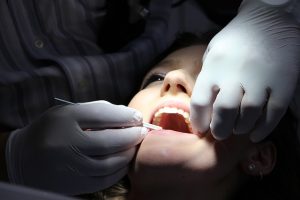
We understand. The idea of receiving anesthesia can be intimidating. What’s important to keep in mind is that Dr. Puckett is a trained and experienced oral surgeon who is licensed to administer all types of sedation dentistry. You will have a range of options available to you. We’re happy to discuss them in detail. We want you to feel as comfortable and relaxed as possible. As a maxillofacial surgeon, Dr. Puckett wants what’s best for his patients — and that means high quality care, delivered as comfortable and pain free as possible.
We’re often asked: What kind of anesthesia is used for oral surgery? There are a number of options available. Let’s describe them in detail.
There are 4 types of anesthesia are commonly used in oral surgery:
Local Anesthesia
Nitrous Oxide Sedation with Local Anesthetic
IV Sedation
General Anesthesia
Local Anesthesia
With local anesthesia, you’ll be conscious throughout the oral surgery. This is the method commonly used by dentists if you’ve ever had a cavity. We inject an anesthetic (such as lidocaine) in and around the surgery area. The only discomfort is a slight pinch when it is applied.
Local anesthesia is typically used for minor oral surgery. You may feel the pressure of the dental instruments. If you feel any discomfort, let us know. We’d be happy to adjust the medication levels until you are perfectly comfortable.
Nitrous Oxide Sedation with Local Anesthetic
Sometimes we combine nitrous oxide sedation with a local anesthetic. This approach can be done for simple oral surgeries and dental procedures, but it can also be done for wisdom teeth extraction if you’re worried about being put under. Otherwise known as laughing gas, nitrous oxide will help you relax and can ease anxiety. It acts as a sedative and analgesic, calming you and controlling pain.
IV Sedation
IV sedation is a deeper form of anesthetic applied to an intravenous catheter. Also known as twilight sedation, this type of sedation doesn’t completely knock you out, but you will likely have no memory of the procedure. You may remember a brief conversation before the procedure and immediately after we are done, but little to no recollection of the process itself. You will be calm and comfortable, drifting in and out of sleep, barely conscious.
General Anesthesia
When you think about being put under for a surgery, you are thinking of general anesthesia. It’s a more profound anesthesia experience than IV sedation as you will be completely put to sleep. We tend to use this for more extensive oral surgeries such as impacted wisdom teeth removal, dental implant placement, or face and jaw full mouth reconstructions.
Getting the Care You Need
All forms of sedation dentistry are available to you at our office. They are safe for all ages and health conditions. We strive to use natural medications as much as possible.
If you or your loved one has special medical needs, extreme anxiety, or if you suffer from dementia or Alzhemiers, sedation dentistry can be an effective way of getting the care you need in a comfortable, relaxed, and safe setting.
